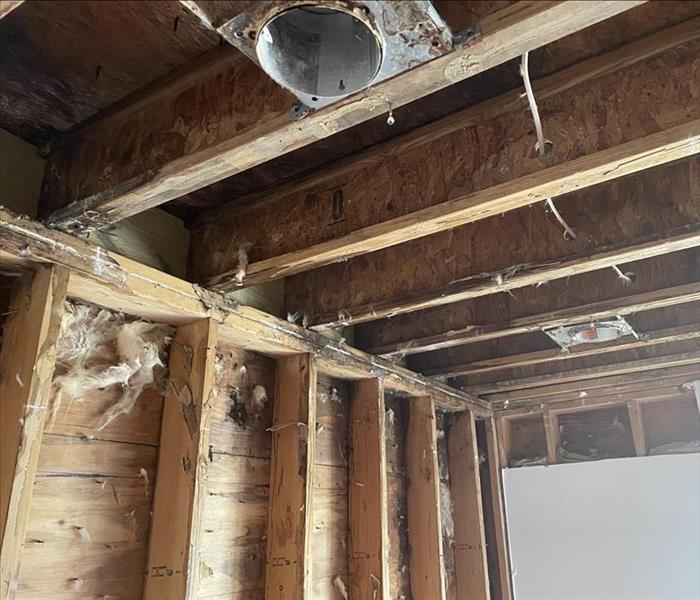The impact of smoke damage on HVAC systems
12/11/2024 (Permalink)
 Maintaining your HVAC system after smoke exposure is key to preserving the air quality and efficiency of your property.
Maintaining your HVAC system after smoke exposure is key to preserving the air quality and efficiency of your property.
When smoke infiltrates a building during a fire, it doesn’t just affect surfaces like walls, furniture, and ceilings—it also has a significant impact on your HVAC system. Smoke can permeate the system’s ducts and components, leading to long-term issues that may affect your entire property. Understanding the effects of smoke damage on HVAC systems is essential for proper restoration and preventing future problems.
How Smoke Enters and Affects HVAC Systems
During a fire, HVAC systems can quickly spread smoke throughout the building, even to areas that weren’t directly exposed to flames. The system’s ductwork essentially acts as a distribution channel for soot, ash, and smoke particles. These particles can settle within the system, causing blockages, reducing efficiency, and potentially leading to mechanical failures.
Soot and smoke residues are acidic and can corrode metal components, leading to costly repairs or even full system replacements. Additionally, dirty ducts can release the smoke odor back into your home or business long after the fire has been extinguished, making it difficult to fully recover from the disaster.
Signs Your HVAC System May Have Smoke Damage
If your property has experienced a fire, it’s essential to recognize the signs that your HVAC system may be compromised. Here are a few indicators of smoke damage:
- Persistent smoke odor even after cleaning
- Increased dust and soot deposits in vents and filters
- Reduced airflow or inconsistent temperature control
- Unusual noises or inefficiencies in the system
If you notice any of these signs, it's time to inspect and potentially clean your HVAC system.
The Importance of Professional HVAC Cleaning
Smoke damage to HVAC systems is not something that can be easily handled with DIY methods. Professional cleaning services, like those offered by SERVPRO® of Northern Liberties, are crucial in ensuring the entire system is properly restored. According to the National Fire Protection Association (NFPA), heating equipment accounted for 14% of reported home fires between 2014-2018, illustrating how critical HVAC system maintenance is after a fire.
SERVPRO’s professionals use specialized tools and techniques to thoroughly clean ductwork, filters, and the interior components of HVAC systems. This process helps eliminate soot and smoke particles, preventing them from causing further damage or recirculating through your property.
Protect Your HVAC System After a Fire
Maintaining your HVAC system after smoke exposure is key to preserving the air quality and efficiency of your property. Routine inspections, thorough cleanings, and professional assistance ensure your system is running smoothly and is free from smoke-related issues.
Don’t let smoke linger in your HVAC system—contact SERVPRO of Northern Liberties today for expert cleaning and restoration.

 24/7 Emergency Service
24/7 Emergency Service